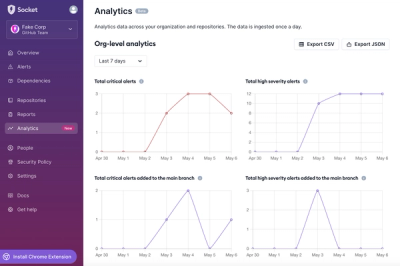next-facebook-tracking
next-facebook-tracking is a simple and efficient library for integrating
Facebook Pixel and Conversions API tracking into your Next.js application. It
provides easy-to-use components and hooks to handle various Facebook Pixel
events.
Installation
Install the package via npm or yarn:
npm i --save next-facebook-tracking
Usage
Setup
First, create a Facebook tracking instance:
import {FacebookTracking} from 'next-facebook-tracking'
export const facebook = new FacebookTracking({
debug: true,
})
Add the Provider to Your Layout
Wrap your application's layout with the FacebookTrackingProvider in
layout.tsx:
import {
FacebookTrackingProvider,
FacebookPageView,
} from 'next-facebook-tracking/components'
import {facebook} from './facebook'
export default function RootLayout({children}) {
return (
<html lang="en">
<body>
<FacebookTrackingProvider client={facebook}>
{children}
<FacebookPageView
action={async event => {
'use server'
facebook.track(event)
}}
/>
</FacebookTrackingProvider>
</body>
</html>
)
}
Create a Custom Script
FacebookTrackingProvider will load try to load Facebook's Pixel script from
/scripts/pixel.js after the first render so you need to create this file:
const PIXEL_ID = document.currentScript.getAttribute('data-pixel-id')
function initializeFacebookPixel(f, b, e, v, n, t, s) {
if (f.fbq) return
n = f.fbq = function () {
n.callMethod ? n.callMethod.apply(n, arguments) : n.queue.push(arguments)
}
if (!f._fbq) f._fbq = n
n.push = n
n.loaded = !0
n.version = '2.0'
n.queue = []
t = b.createElement(e)
t.async = !0
t.src = v
s = b.getElementsByTagName(e)[0]
s.parentNode.insertBefore(t, s)
}
initializeFacebookPixel(
window,
document,
'script',
'https://connect.facebook.net/en_US/fbevents.js',
)
window.fbq('init', PIXEL_ID)
Track Events on Page Load and Interactions
Use the facebook instance to track events on page load and interactions in
page.tsx:
import {facebook} from './facebook'
import {
FacebookTrackOnClick,
FacebookTrackOnRender,
} from 'next-facebook-tracking/components'
export default async function Home() {
await facebook.track({
event_name: 'PageView',
})
return (
<>
<FacebookTrackOnClick
action={async event => {
'use server'
facebook.track(event)
}}
event={{
event_name: 'AddToCart',
custom_data: {
value: 10.1,
currency: 'USD',
num_items: 1,
},
}}
>
<button>Track something</button>
</FacebookTrackOnClick>
<FacebookTrackOnRender
event={{
event_name: 'InitiateCheckout',
custom_data: {
value: 30.1,
currency: 'USD',
num_items: 3,
},
}}
/>
</>
)
}
FacebookTracking Class
Configuration
The FacebookTracking class is used to manage Facebook Pixel and Conversions
API tracking.
Constructor
new FacebookTracking(config: FacebookTrackingConfig)
FacebookTrackingConfig Options:
pixelId (string): The Facebook pixel ID. Defaults to
NEXT_PUBLIC_FACEBOOK_PIXEL env var.accessToken (string): The access token for Facebook Conversions API
(optional). Defaults to FACEBOOK_CONVERSIONS_API_TOKEN env var.testCode (string): The test code for Facebook Conversions API (optional).
Defaults to FACEBOOK_TEST_EVENT_CODE env var.debug (boolean): Enable or disable debug mode. Defaults to false.
Methods
track
Tracks custom events.
async track<T extends Facebook.Event.EventName>(event: Facebook.Event.EventData<T>)
Custom Hook
useFacebookPixel
Provides access to the FacebookPixel context.
const context = useFacebookPixel()
Components
FacebookTrackingProvider
A context provider for the Facebook tracking instance.
Props:
client (FacebookTracking): The Facebook tracking instance.
FacebookPageView
Tracks page views.
FacebookTrackOnClick
Tracks events when a component is clicked.
Props:
action (function): The function to execute on click.event (object): The event details to track.
FacebookTrackOnRender
Tracks events when a component is rendered.
Props:
event (object): The event details to track.
License
MIT License
Feel free to customize this README file further to match any additional features
or details specific to your package.



